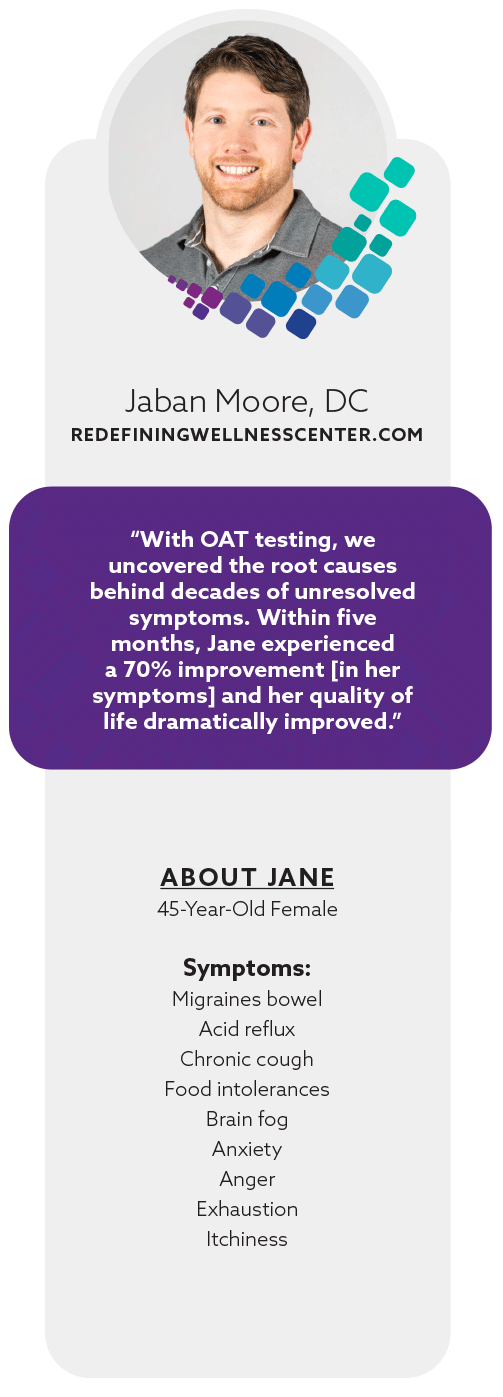
Background
Jane is a 45-year-old female who presented with lifelong symptoms including “migraine bowel,” acid reflux, chronic cough, food intolerances, brain fog, anxiety, anger, exhaustion, and itchiness.
Patient Opportunity
Jane sought care after experiencing a lifetime of unresolved symptoms beginning in childhood, including migraine bowel, acid reflux, and chronic cough. Despite being evaluated by GI, pulmonary, and general medicine specialists, she was repeatedly told her results were normal.
By her 40s, her symptoms had worsened significantly. She reported increasing food intolerances with upper abdominal pain, brain fog, severe anxiety, anger, exhaustion, itching, a worsening cough, and extended menstrual cycles lasting 19 days. Over the past five years, these symptoms severely impacted her ability to work—leading a hospital medical team—and her capacity to be present with her family, all without a definitive diagnosis.
Approach
We conducted an Organic Acids Test (OAT), along with a blood draw and hair analysis. While her blood work appeared largely unremarkable, the OAT revealed overgrowths of Aspergillus, Candida, and other GI bacteria. These findings pointed to mitochondrial suppression—evidenced by abnormalities in Krebs cycle and fatty acid oxidation markers—along with oxalate accumulation and a vitamin B2 deficiency.
Based on these results, we tested her home for mold exposure and transitioned her to a histamine-free diet. Due to her high reactivity, we began treatment with gentle homeopathic remedies to calm her nervous system. As her tolerance improved, we opened drainage pathways, introduced targeted herbal therapies to rebalance her GI microbiome, and implemented mold-binding agents along with antifungals to address remaining fungal colonization.
Results
Within the first five months, Jane experienced a 70% reduction in symptoms. She shared that she doesn’t remember ever feeling this well. She has even incorporated elements of the nervous system work we used into her leadership approach with her medical team. Her menstrual cycle has regulated to 27 days, fatigue improved from a nine to a two, and irritability decreased from a nine to a one.
*The patient name has been changed to protect their privacy.
This material is for educational purposes only and is not a substitute for professional medical advice, diagnosis, or treatment. Use of this information is at the reader’s discretion and risk.
Insights That Lead to Impact
Now, are you ready to share your success? Let your story inspire others and showcase the incredible impact of your expertise.
Experienced practitioners, submit your case study and inspire others.








